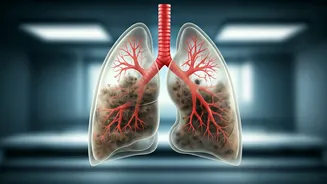Toxic Air's Toll
The relentless pollution in Delhi-NCR has reached 'severe' levels, creating a public health emergency. The hazardous air is not just an irritant; it's
a direct threat, with serious implications for the health of Delhiites. According to recent reports, the air quality is causing a noticeable surge in respiratory ailments. The most vulnerable, like infants, are severely affected. Many newborns are developing pneumonia within weeks of birth, and there has been a rise in the incidence of childhood asthma cases. The air quality is impacting the overall public health in alarming ways.
Impact on Infants
One of the most concerning outcomes of the pollution crisis is the impact on young children. Reports reveal that newborns are developing pneumonia within weeks of birth. This indicates the severity of the air pollutants that are being inhaled. The delicate respiratory systems of infants are highly susceptible to damage from polluted air. The increased exposure to toxins is setting the stage for long-term health complications. The situation emphasizes the urgent need for preventative measures to safeguard the health of future generations and manage the sources of pollution.
Rise of Asthma Cases
Alongside the increasing instances of pneumonia, there is also a notable climb in asthma cases, a long-term respiratory ailment that significantly affects the quality of life. The polluted air is acting as a catalyst for asthma, particularly in children. This chronic condition leads to frequent health crises, necessitating regular medical intervention and imposing constraints on everyday activities. The rise in asthma cases is a stark indicator of the detrimental effects of air pollution, emphasizing the necessity of immediate action to improve air quality and protect public health. The long-term implications of these conditions could be severe, impacting a significant portion of the population.




















